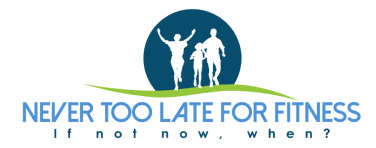As Baby Boomers age and see their waist lines expand, they look for ways to lose fat. There are several methods for fat loss that include diet, exercise, or a combination of both.
The fastest and healthiest approach for achieving successful fat loss is to combine both diet and exercise.
Let’s take a look at the top reasons why exercise makes you lose fat faster than diet alone.
- Increases calories burned
Exercise can increase calories burned. The calories burned in a day are going to affect how your body can metabolize the food you take in, as well as the nutrition stored in your body (muscle tissue and fat tissue).
The higher the calorie burn, in a day, the more nutrients your body needs to function and run vital organs.
- Calories per hour
The Mayo Clinic provides a chart, based on weight, for calories burned by activity (See mayoclinic.org). An hour of high-intensity running for a 160-pound person can burn as much as 860 additional calories.
Even light activities like a slow walk or Tai Chi can burn up to 200 extra calories per hour (for the same 160-pound person). If you did just either of those activities for 5 days a week, you’d lose a little over a pound a month.
These calories add up! Causing your body to seek nutrition from sources other than the food, you consume (like fat).
- Maintains your muscle
Unfortunately, when people begin to lose weight the body goes through a process called catabolism. Catabolism is the breakdown of muscle tissue and other tissue to provide energy for the body. Most people lose .08 to 1 percent of their muscle mass a year starting at age 40. At 60, it increases to 1.5%.
Muscle is much easier for the body to use as energy than fat. Knowing that muscle is easily lost, strength and weight training for weight loss will keep muscle on the body and force it to begin burning.
However, to maintain or build muscle, your body needs adequate protein. Boomers should aim for a daily protein goal (grams/day) equal to half of your current weight (expressed in pounds). For a person weighing 160 pounds, this is 80 grams of protein. That is equal to 10 eggs or about three 3 oz. chicken breasts. Adults who have kidney or liver disease should check with their physician before significantly boosting protein intake. To increase your protein intake, focus on eating more fish and poultry, rather than loading up on red meat. Low fat dairy and soy foods are other good choices, as are beans, nuts, seeds and eggs (in moderation). Small amounts of protein in whole grains and vegetables add up too when you enjoy them in abundance.
- Gives your metabolism a boost
According to the American Council on Exercise, there is a higher effect on the metabolism 24 to 48 hours after high-intensity interval training (HIIT) and resistance training.
Often resting metabolic rates drop when people cut calories. This makes the metabolism slow! However, studies have shown that resting metabolic rates can be maintained with exercise, even on very low-calorie diets.
It is important to keep higher calorie burns when on very low-calorie diets to stop the body from holding on to fat. Reducing resting metabolic rates on a very low-calorie diet will also increase the body’s cortisol (stress hormone) levels causing the body to store excess fat.
- Interrupts hunger hormone production
There are two hormones (leptin and ghrelin) responsible for hunger symptoms in the body. This duo of hormones causes both fullness and appetite.
Feel fuller with leptin
Exercise has been shown to increase leptin levels. An increased leptin level will allow a person to feel fuller longer. When you feel full, you eat fewer calories. This causes the body to start the catabolism process (aka, use fat for fuel).
Ghrelin, the gremlin of hormones
Ghrelin is the hormone that is responsible for signaling hunger. Exercise has been shown to reduce the production of ghrelin. When ghrelin levels are in excess, there are side effects, including increased hunger and decreased satiety after consuming significant amounts of food. Obesity often leads to an increase of this hormone in the body
Exercise also changes the body’s responses to the hormones ghrelin and leptin. The body becomes more sensitive to trace amounts of these hormones. Exercise has been shown to stabilize the hormone response to food as well as the hormonal triggers to eat. Essentially exercise is like having Excalibur in the battle against the bulging belly.
Bottom Line
Exercise has many well documented health benefits. One of the additional benefits that people often overlook is the increased fat burning.
Diet alone is rarely the answer to healthy fat loss. It’s almost impossible to lose fat as a Boomer without exercise.
For most Baby Boomers exercise can be the real tipping point when stepping on the scale and seeing those numbers fall.

